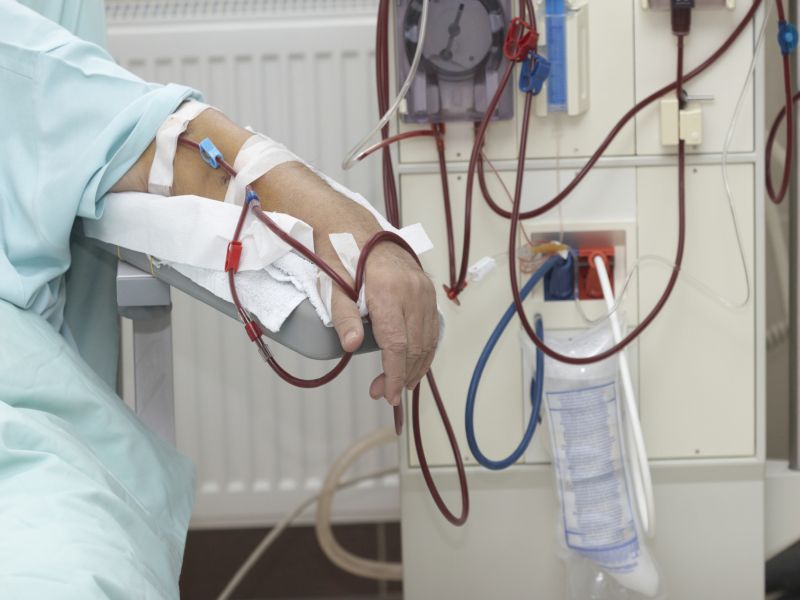FRIDAY, June 9, 2017 (HealthDay News) — Thirty million American adults have chronic kidney disease — but many don’t know it.
That rate — one in seven — is higher than previously estimated, according to an analysis of data from the U.S. Centers for Disease Control and Prevention.
The findings, based on 2011-2014 statistics, should “serve as a warning bell that a major public health challenge is right in front of our eyes and more must be done to address it,” Kevin Longino, CEO of the National Kidney Foundation, said in a news release from the group.
Chronic kidney disease occurs when the kidneys are damaged or can’t filter blood as well as healthy kidneys. As a result, the body retains excess fluid and waste from the blood, which can cause other health problems.
About 96 percent of those with early kidney disease don’t know they have it. The same is true of nearly half who have severely reduced kidney function but aren’t on dialysis, said Longino, who’s a kidney transplant recipient.
“Additional federal resources must be allocated towards increasing public awareness about the disease and advancing programs targeted towards prevention and early detection,” he said.
Longino added that leaders in the health care industry need to make kidney disease a priority. “The earlier we can diagnose someone with kidney disease, the better their long-term outcomes,” he said.
The CDC study also found that women are more likely than men to develop chronic kidney disease (16 percent versus 13 percent).
However, men are 64 percent more likely to progress to kidney failure, a point at which patients require dialysis or a kidney transplant to stay alive.
Chronic kidney disease is more common in blacks (18 percent) than Hispanics (15 percent) or whites (13 percent). But, Hispanics are 35 percent more likely than others to progress to kidney failure, according to the CDC.
Risk factors for kidney disease include diabetes, high blood pressure, heart disease, obesity and family history.
The researchers said rising rates of diabetes and high blood pressure may help explain the increase in kidney disease.
More information
To learn more, visit the National Kidney Foundation.
Copyright © 2026 HealthDay. All rights reserved.

